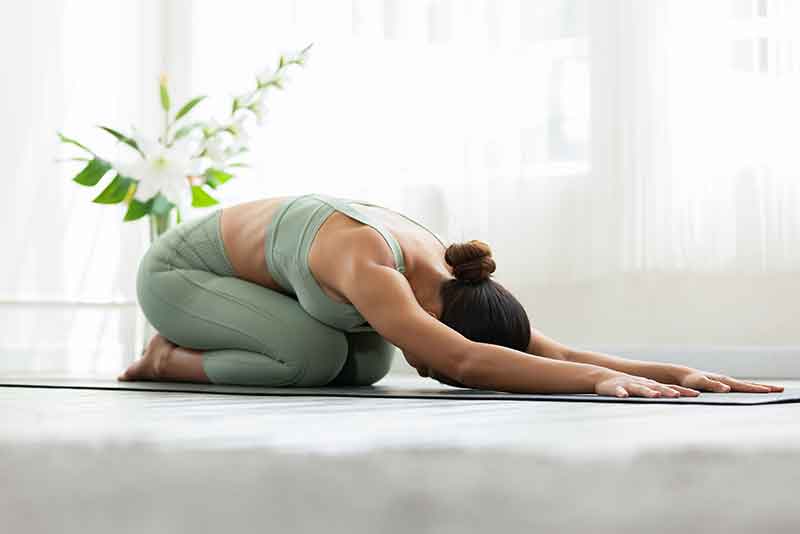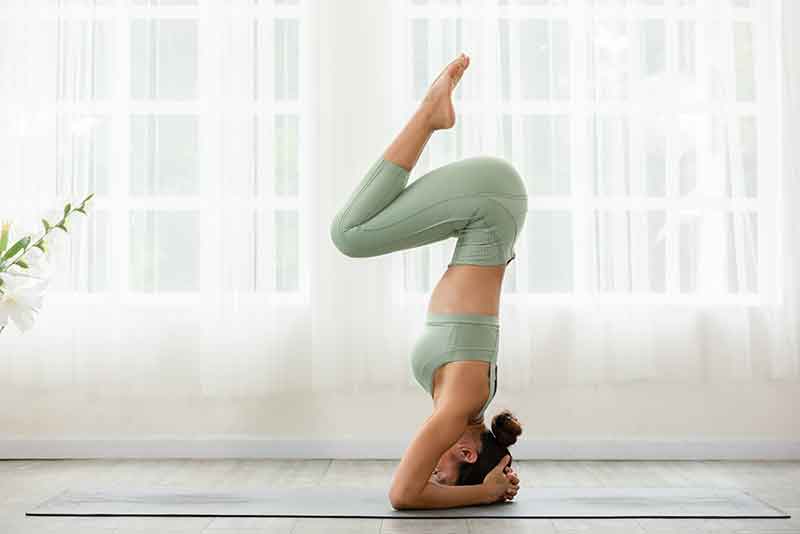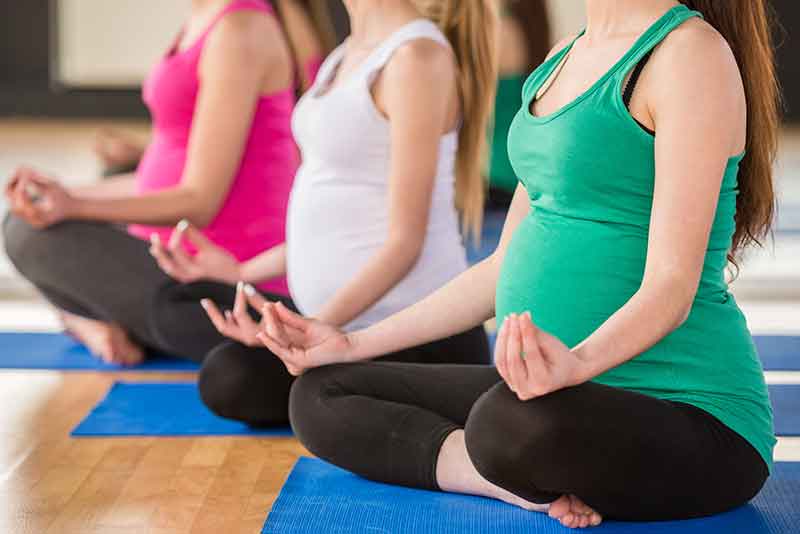Yoga is an ancient discipline that focuses on creating harmony between mind, body, and soul. Derived from the Sanskrit word Yuj that means yolk or union; a humble union of mind, body, and soul. It is a discipline when practiced correctly not only leads to great physical health and mental well-being but also guides you towards the discovery of your true inner being. Yoga is a spiritual practice for some, for others, it is a way to keep their body and mind healthy and for some people, yoga is just a way of life. While this ancient practice continues to gain popularity, at the same time, misconceptions about yoga continue to grow. These misconceptions of yoga kept people away from the yoga mat who might have benefitted from this practice.
We are debunking some common misconception of yoga.
1. Flexibility is the key

You might have heard this phrase many times that you need to be flexible enough to perform yoga. It is a major misconception about yoga practice; yoga is not about twisting your body into difficult yoga poses. Flexibility is all about bringing your awareness to your breath while moving through yoga asanas. It is okay if you are not able to touch your toes on the first go, you can always bend your knees. However, regular yoga practice helps in stretching and lengthening your body muscles as well as increasing your range of motion, hence helping in building flexibility.
2. It is all about yoga Asana and difficult postures

When you attend a yoga class, you will go through a series of yoga poses that may make you think that oh, Yoga is all about asanas (poses). The truth is, asanas are only a tiny part of this ancient science of wellness that is based on the eight limbs. These eight limbs include ethics (Yama and niyama), pranayama, different meditation techniques (dhyana), Dharana, Samadhi, kriyas along with yoga asanas.
3. Yoga is a religious practice

People have this common apprehension about yoga, that it belongs to a certain religion. It is indeed true that yoga is born and nurtured in Rishikesh (India) which is famous as a Dev bhumi for Hindus. However, it is also a prominent yoga myth. Yoga is all about the sacred union of individual consciousness with higher consciousness. Mantra chanting and Japa indeed come from Indian roots but it only helps in increasing your focus and bringing you awareness. Even though yoga has an element of spirituality in it, it also encourages you to live up to your fullest potential in a holistic way.
4. Only women and young can practice yoga

Yoga is for everyone irrespective of their age, gender, religion, or caste. You might see more women in comparison to males in the class, but that doesn’t mean that men are not allowed in the yoga studio.
Nowadays, you will see that many yoga teachers are males and some of the greatest teachers of yoga were also males. The same goes with the concept of only young people doing yoga, which arises when people only think of yoga poses. It is a common yoga myth and the reality is anyone can practice it under the guidance of a trained yoga teacher. Even people who fall under the age group of 50 to 60 years can perform complex yogasanas with ease and perfection under the right guidance. All you need is an open mindset and a willingness to learn.
5. Pregnant and menstruating women should skip yoga

It is another misconception about yoga that menstruating women should stay away from yoga. It is believed on a certain notion that it will lead to the backward flow of blood which doesn’t have any scientific backing. However, there are certain yoga poses such as Ustarasana (camel pose), Malasana (garland pose), and Bhujangasana (cobra pose) that help in regulating the menstrual cycle and healing PCOD. The same goes with yoga for pregnant women as there are special prenatal yoga classes that help in preparing the body of pregnant women for birth. While it may sound challenging, certain low-impact yoga poses such as the bound angle pose helps in stretching as well as strengthening the pelvic muscles that ease the delivery process.
6. Yoga cannot make you lose weight

Experts believe that yoga helps in bringing people to a healthy weight through various means. There are many active and intense styles of yoga that help in burning more calories. Yoga styles such as Vinyasa, Ashtanga yoga, and Power yoga engage the muscles of your whole body. In these forms of yoga, you have to move constantly, which leaves you sweating on the mat. Also, practicing yoga reduces stress and makes you mindful of your eating habits, and makes you aware of binge eating. These habits combined help in losing weight.
7. Yoga might not fit into your schedule

We know that the average yoga session in a studio is 60 to 90 minutes long. However, this notion that you have to dedicate an hour of your day daily to yoga to reap its benefits is far from reality. The length of your yoga practice depends only on the time you are dedicating to it. If you are a beginner, you can start with a 30-minute session. Or if you think that 30 minutes are also too much, then you can go online and practice a beginner 10-minute yoga session. So even if you spare 10 minutes of the day for a yoga session, your body will reap a lot of benefits of yoga. You need to be consistent with your practice.
8. Yoga Can’t Build Strength

Contrary to common belief, yoga isn’t just about stretching and relaxation; it’s also a great way to build muscle strength. Various poses, like planks and warriors, demand muscle engagement which strengthens your body over time. Regular practice can significantly increase your strength, similar to traditional weight training but with the added benefit of improving flexibility.
9. Yoga Requires Special Equipment

While certain props can enhance your practice, the beauty of yoga lies in its simplicity. All you really need is your body and a small space to start practicing. This accessibility makes yoga a practical choice for people of all ages and lifestyles, whether at home or on the go.
10. Yoga is Only for the Mind

While yoga is renowned for its mental and emotional benefits, including stress reduction and increased focus, it also offers significant physical health benefits like improved flexibility, balance, and cardiovascular health. Integrating yoga into your routine can lead to better overall health, complementing other fitness activities.
11. Fast-Paced Yoga is More Effective

Some believe that faster, more intense yoga classes are inherently better. However, the effectiveness of yoga is not determined by the pace, but by how well each pose is executed and maintained, catering to the practitioner’s needs. Slow and mindful practice can deepen the benefits, allowing better alignment and a deeper connection to the breath.
12. You Must Be Vegetarian to Practise Yoga

There is no dietary requirement to start practising yoga. While many yogis choose vegetarianism for various ethical and health reasons, yoga itself does not mandate any specific diet. Practising yoga can be beneficial regardless of your dietary choices, focusing on personal growth and physical well-being.
So these are the seven most common yoga myths debunked. Yoga is a discipline that can be practiced by anyone irrespective of age, flexibility, time constraints, and place. Now that all the yoga myths and reality are out in front of you, we hope that you can adopt this holistic practice with an open mindset.

Mr. Vijay Kumar Pandey is an eminent Yoga teacher with 15 years of experience. He excelled himself in Iyengar Yoga under the guidance of revered master BKS Iyengar Read More



